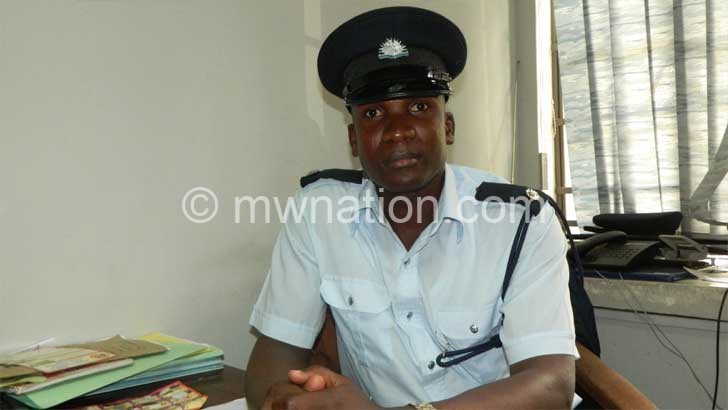fake investors dupe malawi
Hundreds of asylum seekers, refugees and petty foreign traders have flooded the country after getting entry as investors in manufacturing, yet nothing is happening on the ground.
Nation on Sunday can reveal that from 2018 to June 2020, the Malawi Investment and Trade Centre (Mitc) has issued 105 investment certificates to foreign nationals.
Of these companies, only 62 are operational yet most of the remaining cannot be traced while the majority of purported ‘foreign direct investors’ (FDIs) have trekked to rural areas and townships.
The Department of Immigration from January 2019 to October 2020 also issued 161 Business Residence Permits (BRPs) to foreign nationals and most of these businesses cannot be traced.

are operational: Chiponde
The development comes at a time government wants foreigners to only engage in trade and businesses which indigenous Malawians do not have the skills and financial muscle to handle.
On the other hand, the United Nations High Commissioner for Refugees (UNHCR) says as of September 30 this year, the country had registered 47 134 refugees and asylum seekers.
The bogus investors have taken advantage of a weak system of registering businesses even when they have just entered the country with a visitor’s visa or refugee status.
Some investors are jumping Mitc opting for the Department of Immigration to process BRPs.
The Immigration Department issues the BRP based on proof of $7 500 minimum requirement by the Investment and Export Promotion Act 2012, whereas Mitc requires a trader to show proof of $250 000 minimum capital outlay for undertaking retailing or wholesaling activities as spelt out in the Business Licensing Act.
The development has prompted government to draft more stringent recommendations to deal with investors, illegal immigrants, refugees and asylum seekers who are flooding the country.
According to documents we have seen, a technical consultative stakeholders meeting in September this year—involving government ministries, departments and agencies (MDAs)—agreed that government should put up an administrative procedure by not allowing foreigners on visitor’s or refugee visa to register a business during the period of their visit.
They also agreed to stop the Immigration Department from issuing BRPs to holders of business registration certificates obtained on a visitor stay.
“Ministry of Trade should invoke the Business Licensing Act provision in setting aside business reserved for Malawians for purposes of promoting the participation of Malawians in economic activity.
“All foreign businesses with capital outlay of less than $250 000 should be closed and Business Resident Permits issued should be revoked,” reads part of the agreement.
A recommendation was also made that Mitc and the Ministry of Trade should monitor foreign businesses and flush out illegal migrants and foreign investors and traders.
“These investors have registered their business names with the Registrar of Companies without going through Mitc and they are using Business Registration Certificates to acquire residential or business permits status from the Department of Immigration without duly being checked on their investment or nature of business or proof of resource to venture into business,” part of the agreement reads.
Ministry of Trade spokesperson Mayeso Msokera said his office is aware of the recommendations and that they have already started working on them.
He said, according to the Business Licensing Act, it is illegal for business operators, who are not citizens of Malawi, to do retail business in townships and rural areas.
“They are supposed to operate in central business districts (CBDs) of designated places such cities and municipalities, for instance, Blantyre, Zomba, Lilongwe, Mzuzu, Kasungu and Luchenza. Unless a special approval is obtained from Ministry, any person who carries on a business in contravention to this provision commits an offence punishable by law.
“The Act, therefore, empowers the Ministry of Trade to license all foreign traders whereas businesses owned by Malawians are licensed by local authorities. We carry out routine inspection and the next round is taking place in the next two weeks to flush out all illegal traders,” he said.
Msokera said the ministry is also discussing with the Ministry of Local Government and Local Authorities to forge a common approach and lasting solution to the illegal trading problem.
Msokera asked for more time to comment on the recommendation to revoke licences.
Asked to comment on the recommendations drafted by government, reporting and public information associate at UNHCR, Rumbani Msiska referred Nation on Sunday to the Ministry of Homeland Security.
Msiska only confirmed the number of registered refugees and asylum seekers, saying most of them are coming from the Democratic Republic of Congo (DRC), Burundi, Rwanda, Ethiopia and Somalia.
Mitc assistant public relations officer Nellie Mononga said out of 105 investment certificates they issued, only 62 companies are operational and two companies have closed.
“These companies have shown interest to invest in the sectors of manufacturing, agriculture and agro-processing, services, tourism, infrastructure development, mining and energy,” said Mononga.
Deputy national spokesperson for the Department of Immigration Wellington Chiponde claimed that the 161 companies that received BRPs are all operational in their specified business fields.
“These applications were from different sectors of the economy such as agriculture, energy, manufacturing, mining, tourism and health,” he said.
At the opening of Sogecoa Golden Peacock Hotel in Blantyre recently, President Lazarus Chakwera warned investors against taking jobs or trades meant for indigenous Malawians.





